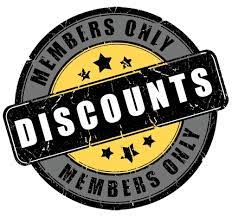
Check out the
MEMBERS PAGE! →
Executive Message
The CGDMS education team has provided fewer talks this past year than we have for the last several years. This is probably due to a combination of people getting busier on the part of potential speakers, as well as our volunteers getting busier. Our goal for next year is to target a presentation a month from September 2023 to June 2024, with possible exceptions on the months we run social events.
The online presentations have been well received, making it a bit easier for people to attend if they are not downtown, or have trouble getting away from the office. There will be a discussion on possibly doing in-person presentations or a hybrid approach for the coming year. Any feedback from the membership would be appreciated.A few ideas we are looking at include well abandonment and integrating Lidar data into geology. Revisiting some previous topics we have looked at in the context of several years of development could be interesting as well. Things such as CCUS and AI have undergone a dramatic change recently. We will do our best to create an interesting and informative schedule.
The May 31st talk by Pat Meroney from Katalyst was an excellent description of the OSDU data platform. If you didn’t attend, I would recommend checking out the recording on the Members Page of the website. He did a great job of summarizing what the platform is all about and maybe where it is headed in terms of unifying geoscience data.
If there is anything you would like to see this coming year drop us a line at info@cgdms.ca and we will try to get it set up.
Thanks, and enjoy the summer!
Jason Noble
CGDMS Exec
Latest submissions .....
Seismic Data Mergers and Acquisitions – 101
Contributed by Denise Freeland
Mergers and acquisitions are a fact of life in the energy industry and have been since the very early days. I have personally been involved in many throughout my career. This series of articles will share my observations on having a positive corporate transaction experience. I would never say that these events are ‘easy’ but perhaps can be less chaotic.
This first article in the series deals with what is the ideal starting point for merging your seismic databases. I like to map all the seismic lines together but with each company’s data clearly labelled and visible. Mapping using different colours gives you a clear visual of where you may have duplicates. When companies merge it is usually because they have core areas of interest, and this is where most duplicates will occur. There are Service Providers and software that can provide significant assistance in identifying duplicate data.
Identifying duplicate data is imperative for many reasons. There will be AFEs, or land transactions associated with each seismic line or program that define how the data may be used in the future. The questions that often arise about potential duplicates are:
- Does either company own the data 100%? The line name of the 100% line is likely to be the most accurate and the physical should be the original.
- Are either company a partner or are both companies partners which then changes the total ownership percentage? The line with the highest ownership percentage will be the line you want to cross-reference the duplicate lines to.
- Is the data spec or owned by a Data Provider company – you would not want to pay more license transfer fees than were required. These companies have contracts that specify what type of transfer fees are associated with each type of corporate transaction.
- Is each line partial or complete? If the lines have been licensed (trade) then pick the line that is most complete.
- Has the survey for a line or program been recently audited? Choose the recently audited line for your mapping database – even if you must change its name to the line name with the best ownership.
Once you have identified likely duplicates – they may not be named the same way in both databases – cross-reference them in your database. This is only the first step – do not delete anything until you have answered the other questions. I have participated in mergers and acquisitions where there were multiple duplicates and duplicate portions (depending on how many previous mergers and acquisitions the companies had previously been involved in). Once the potential duplicates are identified, you can move on to ownership and data storage and warehousing.
Stay tuned for upcoming articles! I invite you all to send me your observations and suggestions.

In an effort to make lives a tiny bit easier we are happy to gather multiple educational opportunities, short courses, events, online learning and webinars from the following organizations and most are hyperlinked to registration for ease of use. If you have an event that may be of interest send a note to info@cgdms.ca
- CGDMS ~ Calgary GeoScience Data Managers Society
- CSEG ~ Canadian Society of Exploration Geophysicists
- CSPG ~ Canadian Society of Petroleum Geoscientists
- PPDM ~ Professional Petroleum Data Management Association
- PUG ~ Petroleum Users Group
- CSUR ~ Canadian Society for Unconventional Resources
- SPE ~ Society of Petroleum Engineers
- DAMA ~ DA Management Association International – Calgary Chapter
- GeoWomen ~ GeoWomen.org
- APEGA ~ Association of Professional Engineers and Geoscientists of Alberta
- ASET ~ Association Of Science & Engineering Technology Professionals Of Alberta
- ARMA ~ Alberta Records Management Association
- CWLS ~ Canadian Well Logging Society
- CAGC ~ Canadian Association of Geophysical Contractors
- CAPP ~ Calgary Association of Petroleum Producers
- KEGS ~ Canadian Exploration Geological Society
- AGS ~ Atlantic Geological Survey
- GSC ~ Geological Survey of Canada
- PDAC ~ Prospectors & Developers Association of Canada
Please note: to return to the calendar you must click on the little calendar to the left of the month!
Interested in receiving updates, newsletters and invitations? No cost to you!
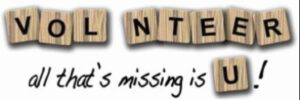
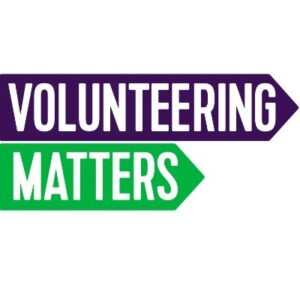 CGDMS is working on generating new benefits for our members and volunteers. We are actively working on developing arrangements with partners to provide benefits for our members.
CGDMS is working on generating new benefits for our members and volunteers. We are actively working on developing arrangements with partners to provide benefits for our members.
CGDMS is also looking for volunteers to help out with our current and future initiatives.
- Staying connected with people who share common interests and work experiences
- Experience in team projects and team building
- Networking opportunities with others in the industry and in other industries.
- Advanced training in Zoom and LinkedIn, and other platforms as the need arises.
- Becoming proficient with Board operations and etiquette.
- Opportunities for project and people management to increase your skillset
- Being on the frontline of new technologies and information regarding our industry and data management, as well as new and emerging industries.
- Being visible in your skills and expertise to potential employers.
- Opportunity to be a leader and set direction for our profession in the future.
CGDMS Sponsors
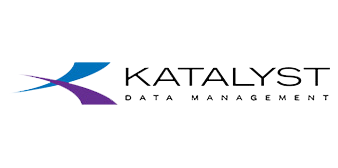
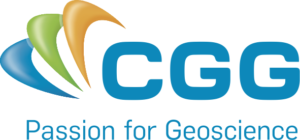
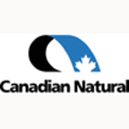




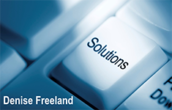
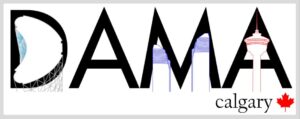
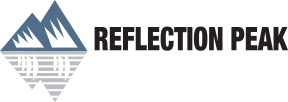
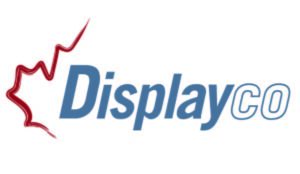
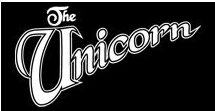
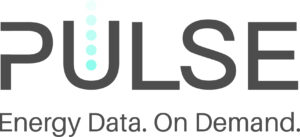



New Assessment Tool Helps Determine Who Needs Permit to Practice
The Professional Governance Act has introduced the requirement for Engineers and Geoscientists BC to regulate firms that engage in the practice of professional engineering or geoscience. Firms will be required to register for a Permit to Practice with Engineers and Geoscientists BC beginning July 2, 2021 and must complete their registration before September 30, 2021.
I have the pleasure of being a founding member of the Calgary Geoscience Data Managers Network and then Society since the beginning with Sean Callaghan. That was about 10 years ago, and I have learned so much since then. I have been able to get experience in every role in the CGDMS. Volunteering has created opportunities and connections that I had never imagined.
What I do in the Petroleum Industry is valuable and it saves companies time and money. It is sometimes hard to articulate that value to employers, but I think that if we stand together, we can use the same value proposition to get the message out there. The time and cost of data specialists is much less expensive to a company that the time and cost of a geoscientist trying to manage the data as well as find oil and gas.
Early in my career I learned about ‘Best Practices’ and ‘Continuous Improvement’ and have tried my best to implement those in my everyday life and to share them with my colleagues. The other thing I learned is that you cannot create an efficiency by simply moving the work to someone else – you must analyze it and make it better. Asking a service provider to follow a poor process that makes work for them or a service provider sending a product that makes more work for a tech or data manager is not creating an efficiency or best practice. The CGDMS was initiated to help start the discussion between all of us to create true efficiencies and continuously improve. We all depend on the data and we are all looking for ways to save time and money!
Please join me and the CGDMS Team to continuously adapt how we bring value to our members and our industry. We need input from all our members to move forward and stay current, especially in these challenging times.
Denise Freeland
Past President CGDMS
The Calgary Geoscience Data Manager Society (CGDMS) started with Sean Callaghan, a former surveyor and person who gathered geoscience technicians and technologists to talk about common problems and issues. It was Sean’s desire to share with others, that fostered the creation of this society. Today, CGDMS is a society for geoscience technicians, technologists and data managers, all of whom touch, use and manipulate geoscience data as it evolves from being just data, to information and knowledge used to find and develop oil and gas resources. Whether it be seismic data, well-log data, thin sections or laboratory measurements of rocks, the data collected is used to enhance information and knowledge and thereby mitigate future drilling risk. Technicians, technologists, and data managers play a vital role in this process.
The society continues to foster comradery and the sharing of knowledge through its newsletter and educational sessions. None of this is possible without the dedication and support of the society’s volunteers. With the Annual General Meeting forthcoming on September 15th, the society needs volunteers. A list of open positions is noted below. We encourage you to volunteer and to make a difference. This society is whatever you make it to be. The society is here to serve, support and share but we cannot do it without you!
As a frequent and recurring volunteer for the Canadian Society of Exploration Geophysicists (CSEG), I learned a lot about myself and expanded my skills as I volunteered in numerous roles and capacities. I grew as a person! I also accomplished a lot for the society working beside my colleagues.
The time is now for the members of the CGDMS to step up to the plate and volunteer to make a difference. Make the society what you want it to be. Who knows, you may learn something about yourself and grow personally through the experience.
Doug Uffen, P. Geoph (APEGA), P. Geo (APEGBC)
CGDMS Board Member
Look here for information coming soon……
Most of us are working from home these days and our personal computer systems are more important than ever. Eric Keyser, geophysicist, has documented a method of setting up a personal cloud system for a very modest cost. We all have data to manage. We have put this on our website – check it out here and on the Resources Page!
